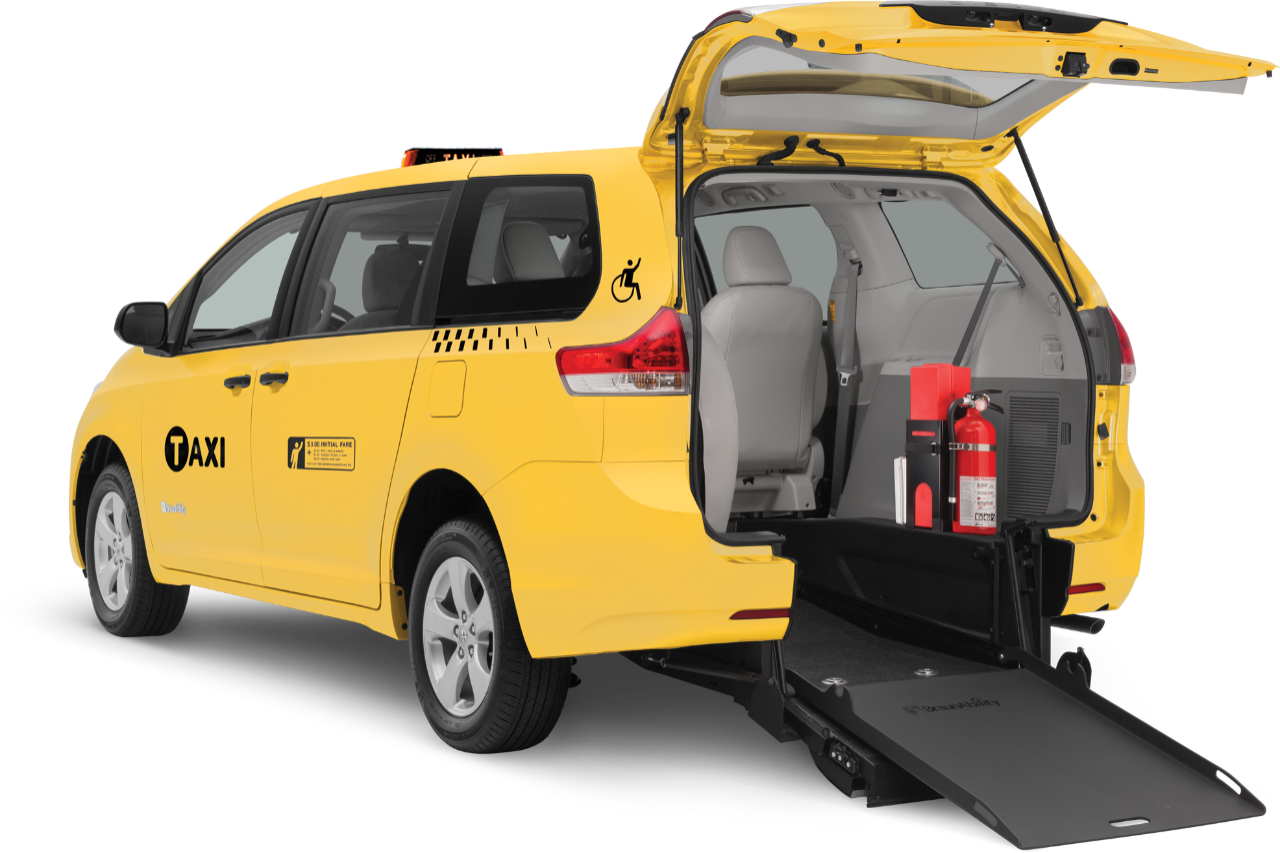The Importance of Accessible Service in Taxi and Ride-Share

Independence, spontaneity, and convenience are freedoms that modern-day commuters and travelers take for granted. While numerous forms of transportation exist –personal vehicles (cars, trucks, vans, SUVs), public mass transit, micro-transit, taxis, and ride-share –navigating unfamiliar cities can be daunting if driving one’s self is the only option. As a career road warrior, surface transportation is my preferred mode of mobility to/from appointments. I value the choices of a taxi or FHV (For-Hire Vehicle) as both allow a chance to prepare, make calls, or relax en route to the next meeting or hotel.
The Significance of Inclusion and Ride-Share
The option to hail a cab is a choice many make either at the curb or through e-hail apps. Across the globe, TNC’s (Technology Network Companies- Uber, Lyft) have developed mobile apps allowing for instant or pre-arranged booking in vehicle types of the consumer's preference. Historically, the reality for individuals with limited or no mobility is that there is not an equal level of opportunity to utilize taxi, FHV, and ride-share services. Although the ADA (Americans with Disabilities Act) of 1990 has now been a law for 30 years, and vital in increasing inclusion for those with disabilities and reducing discrimination, some forms of transportation were not changed until recent times. Many people with mobility impairments were forced to use public transportation, which is effective but may require pre-arranging a ride many days in advance. Thus limiting the freedom of choice and independence others easily experience.
Accessible mass transit has changed the lives of millions of people with disabilities for the better, but an enormous gap exists between what the ADA requires and what people with mobility impairments need to be sufficiently mobile. Taxis, for-hire vehicles (FHVs), black car services, and ride-shares have begun wheelchair-accessible vehicle services in many cities around the country. The spontaneous mobility afforded wheelchair users far exceeds day-in-advance reservation required paratransit, in terms of vehicle quality, convenience, and speed. Wheelchair-accessible vehicle service is a lifestyle enhancer and works well for vehicle owners, too. They double as accessible Non-Emergency Medical Transportation (NEMT) providers when they are not in regular service as taxis or FHVs. Taxis and FHVs are as necessary to those with mobility impairments (maybe even more) as they are to the rest of the fare-paying public. Accessible transportation options dramatically enhance employment opportunities and social viability.
- James Weisman, CEO of the United Spinal Association
While accessible taxis have been in service in many U.S. cities for years, the number of ADA compliant accessible taxis varies by metro. The number of accessible taxis is mandated either by proactive regulation or, most often, by litigation. Vehicle volume may be based on a percentage of a company’s total vehicle fleet size or the quantity of wheelchair accessible vehicles (WAV’s) in service is demand-based with some regulators developing incentive programs to appeal to businesses, drivers, and riders.
Beyond the obvious positive impact that WAVs being made available in taxi and ride-Share bring to those with disabilities, the services also assist in creating a more efficient transit environment moving people to work, school, or appointments. WAVs serve as a link to those living outside the network of public transportation hubs. First and last-mile options bring riders into an area where multiple modes of transportation can be utilized. Some of the largest transit authorities in the country have recently partnered in programs with taxi and ride-share providers. WAVs are smaller and less costly to operate than larger vehicles, creating an efficient example of MAAS, (mobility as a service) and providing increased rides at a reduced overhead. Allowing those with disabilities the opportunity to be more independent and travel when convenient for them.
I have had the pleasure to collaborate with many key individuals, strong advocates, regulators, and focused nonprofit groups during my time at BraunAbility. I’ve worked closely with companies operating taxis, FHV, and ride-share, who have
pushed hard to create awareness, develop business models that work financially and socially to provide essential accessible services. I believe in equal access to all and I am proud to see a change taking place.
Every time I get into a taxi, I think of BraunAbility as the ramp in the back is folded out for me. Accessible transportation is really a lifeline for me and I thank you all for your part in making it possible.
- Ronnie Ellen Raymond, NYC disability advocate
Related Articles:
- 3 Reasons to Get a Handicap Accessible Van for a Business
- 3 Tips to Choose the Right Handicap Vans
- 3 Tips to Find the Best Accessible Wheelchair Van
- 3 Tips to Find the Right Electric Lift for the Car Owner
- 3 Tips to Make Your Business More Handicap Accessible
- 5 Benefits of Having a Full Size Handicap Van
- 5 Tips on Choosing Wheelchair Lift Support for Vans
- 6 Features to Look for When Buying Handicap Accessible RVs
- 9 Tips on How to Start a Business in Paratransit Services
- Accessible Vehicle: Rear Entry or Side Entry
